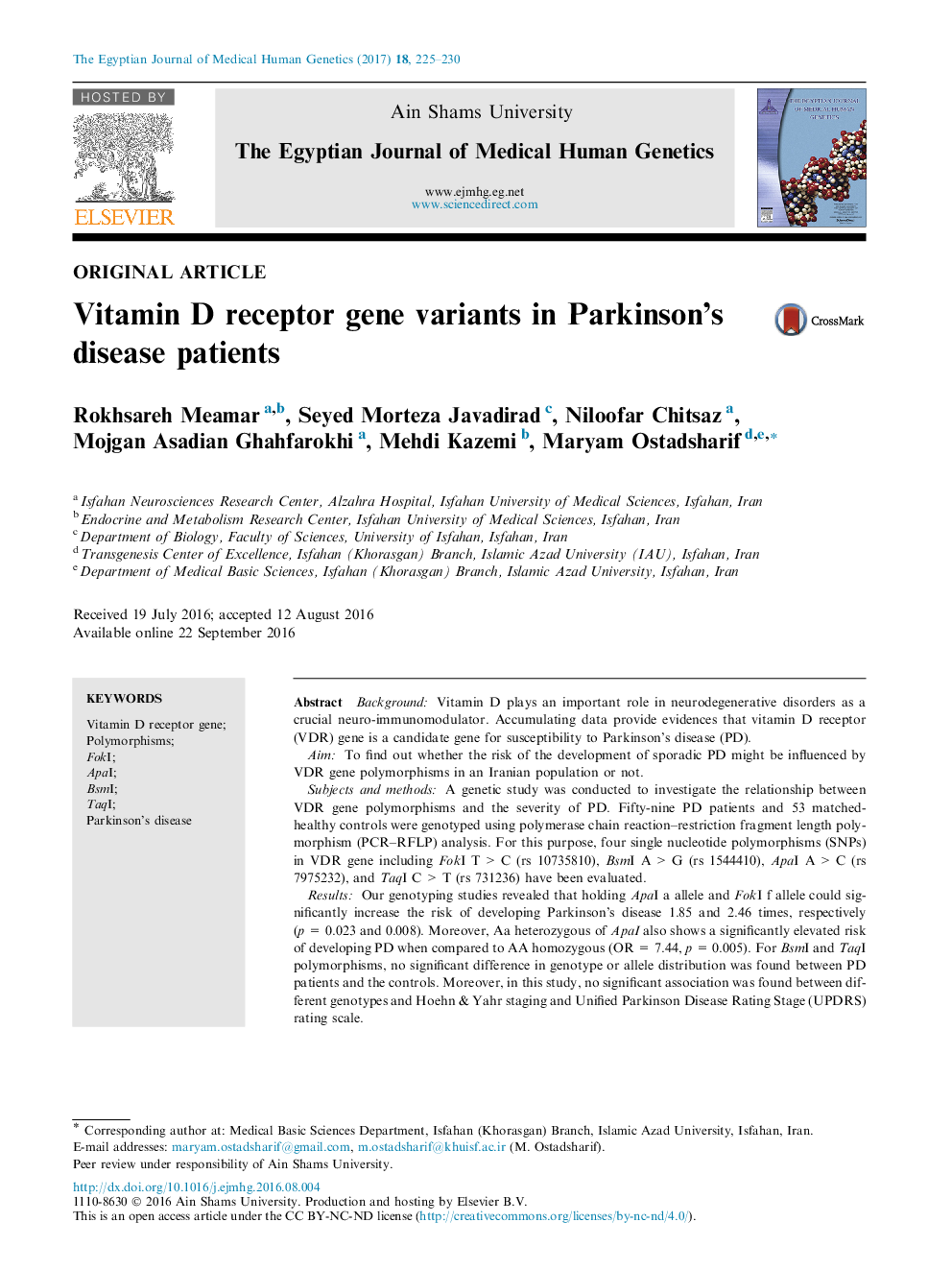| Article ID | Journal | Published Year | Pages | File Type |
|---|---|---|---|---|
| 5532086 | Egyptian Journal of Medical Human Genetics | 2017 | 6 Pages |
BackgroundVitamin D plays an important role in neurodegenerative disorders as a crucial neuro-immunomodulator. Accumulating data provide evidences that vitamin D receptor (VDR) gene is a candidate gene for susceptibility to Parkinson's disease (PD).AimTo find out whether the risk of the development of sporadic PD might be influenced by VDR gene polymorphisms in an Iranian population or not.Subjects and methodsA genetic study was conducted to investigate the relationship between VDR gene polymorphisms and the severity of PD. Fifty-nine PD patients and 53 matched-healthy controls were genotyped using polymerase chain reaction-restriction fragment length polymorphism (PCR-RFLP) analysis. For this purpose, four single nucleotide polymorphisms (SNPs) in VDR gene including FokI T > C (rs 10735810), BsmI A > G (rs 1544410), ApaI A > C (rs 7975232), and TaqI C > T (rs 731236) have been evaluated.ResultsOur genotyping studies revealed that holding ApaI a allele and FokI f allele could significantly increase the risk of developing Parkinson's disease 1.85 and 2.46 times, respectively (p = 0.023 and 0.008). Moreover, Aa heterozygous of ApaI also shows a significantly elevated risk of developing PD when compared to AA homozygous (OR = 7.44, p = 0.005). For BsmI and TaqI polymorphisms, no significant difference in genotype or allele distribution was found between PD patients and the controls. Moreover, in this study, no significant association was found between different genotypes and Hoehn & Yahr staging and Unified Parkinson Disease Rating Stage (UPDRS) rating scale.ConclusionThis study demonstrates a possible association between the VDR FokI and ApaI polymorphism and PD, indicating that VDR polymorphisms may change genetic susceptibility to sporadic PD in the Iranian population.
